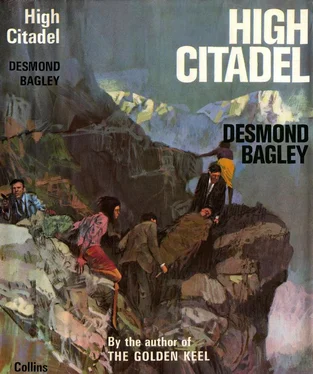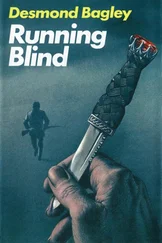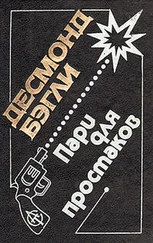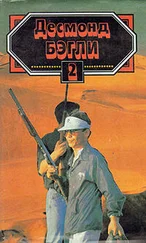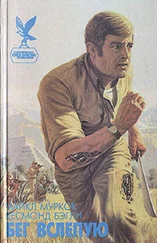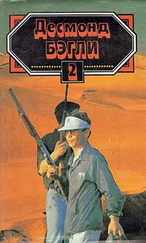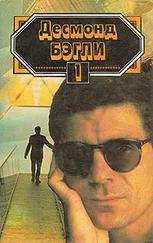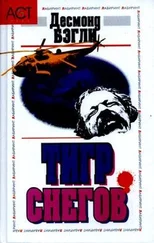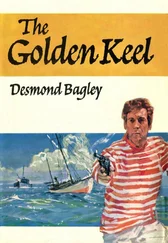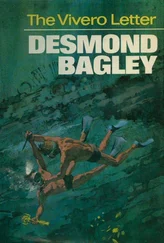Forester, gasping for breath in the thin air, looked at it in dismay. We’ve had it, he thought; how can we get over this? But Rohde, gazing across the pass, did not lose hope. He pointed. ‘I think the ice wall is lower there in the middle. Come, but stay away from the edge of the cliff.’
They started out along the ledge between the ice wall and the edge of the cliff. At first the ledge was narrow, only a matter of feet, but as they went on it became broader and Rohde advanced more confidently and faster. But he seemed worried. ‘We cannot stay here,’ he said. ‘It is very dangerous. We must get above this wall before nightfall.’
‘What’s the hurry?’ asked Forester. ‘If we stay here, the wall will shelter us from the wind — it’s from the west and I think it’s rising.’
‘It is,’ replied Rohde. He pointed upwards. ‘That is what I worry about — the cornice. We cannot stay below it — it might break away — and the wind in the west will build it to breaking-point. It is going to snow — look down.’
Forester looked into the dizzying depths below the cliffs and saw a gathering greyness of mist. He shivered and retreated to safety, then followed the shambling figure of Peabody.
It was not five minutes later when he felt his feet suddenly slide on the ice. Frantically he tried to recover his balance but to no effect, and he found himself on his back, swooping towards the edge of the cliff. He tried to brake himself with his hands and momentarily saw the smear of blood on the ice as, with a despairing cry, he went over the edge.
Rohde, hearing the cry and feeling the tug of Peabody on the rope, automatically dug the ice-axe firmly into the ice and took the strain. When he turned his head he saw only Peabody scrabbling at the edge of the cliff, desperately trying to prevent himself from being pulled off. He was screaming incoherently, and of Forester there was no sign.
Forester found the world wheeling crazily before his eyes, first a vast expanse of sky and a sudden vista of valleys and mountains half obscured by wreaths of mist, then the grey rock close by as he spun and dangled on the end of the rope, suspended over a sheer drop of three hundred feet on to the steep snow slopes beneath. His chest hurt and he found that the rope had worked itself under his armpits and was constricting his ribs. From above he heard the terrified yammerings of Peabody.
With a heave Rohde cracked the muscles of his back and hoped the rotten rope would not break. He yelled to Peabody, ‘Pull on the rope — get him up.’ Instead he saw the flash of steel and saw that Peabody had a clasp-knife and was sawing at the rope where it went over the edge of the cliff.
Rohde did not hesitate. His hand went to his side and found the small axe they had taken from the Dakota. He drew it from his belt, reversing it quickly so that he held it by the handle. He lifted it, poised, for a second, judging his aim, and then hurled it at Peabody’s head.
It struck Peabody squarely on the nape of the neck, splitting his skull. The terrified yelping stopped and from below Forester was aware of the startling silence and looked up. A knife dropped over the edge of the cliff and the blade cut a gash in his cheek before it went spinning into the abyss below, and a steady drip of blood rained on him from above.
O’Hara had lost his flask.
He thought that perhaps he had left it in the pocket of the leather jacket he had given Forester, but then he remembered going through the pockets first. He looked about the shelter, trying not to draw attention to himself, but still could not find it and decided that it must be up at the camp.
The loss worried him unreasonably. To have a full flask at his side had comforted him; he knew that whenever he wanted a drink then it was there ready to hand, and because it was there he had been able, in some odd way, to resist the temptation. But now he felt an aching longing in the centre of his being for a drink, for the blessed relief of alcohol and the oblivion it would bring.
It made him very short-tempered.
The night had been quiet. Since the abortive attempt to burn the bridge the previous evening, nothing had happened. Now, in the dawn light, he was wondering whether it would be safe to bring down the trebuchet. His resources in manpower were slender and to bring the trebuchet from the camp would leave the bridge virtually defenceless. True, the enemy was quiet, but that was no guarantee of future inactivity. He had no means of telling how long it would take them to obtain more timber and to transport it.
It was the common dilemma of the military man — trying to guess what the enemy was doing on the other side of the hill and balancing guesses against resources.
He heard the clatter of a stone and turned his head to find Benedetta coming towards him. He waved her back and slid down from his observation post. ‘Jenny has made coffee,’ she said. ‘I will keep watch. Has anything happened?’
He shook his head. ‘Everything’s quiet. They’re still there, of course; if you stick your neck out you’ll get your head blown off — so be careful.’ He paused; he badly needed to discuss his problems with someone else, not to shrug off responsibility but to clarify the situation in his own mind. He missed Forester.
He told Benedetta what he was thinking and she said immediately, ‘But, of course, I will come up to the camp.’
‘I might have known,’ he said unreasonably. ‘You won’t be separated from your precious uncle.’
‘It is not like that,’ she said sharply. ‘All you men are needed to bring down this machine, but what good can Jenny and I do down here? If we are attacked we can only run; and it does not take two to watch. Four can bring the machine from the camp quicker than three — even though one of them is a woman. If the enemy attacks in force Jenny will warn us.’
He said slowly, ‘We’ll have to take the risk, of course; we’ve got no choice. And the sooner we move the better.’
‘Send Jenny down quickly,’ said Benedetta. ‘I’ll wait for you at the pond.’
O’Hara went up to the shelter and was glad of the mug of steaming coffee that was thrust into his hands. In between gulps he rapidly detailed his plan and ended by saying, ‘It puts a great deal on your shoulders, Jenny. I’m sorry about that.’
‘I’ll be all right,’ she said quietly.
‘You can have two shots — no more,’ he said. ‘We’ll leave both bows cocked for you. If they start to work on the bridge, fire two bolts and then get up to the camp as fast as you can. With luck, the shots will slow them down enough for us to get back in time to fight them off. And for God’s sake don’t fire them both from the same place. They’re getting smart over there and they have all our favourite posts spotted.’
He surveyed the small group. ‘Any questions?’
Aguillar stirred. ‘So I am to return to the camp. I feel I am a drag on you; so far I have done nothing — nothing.’
‘God in heaven!’ exclaimed O’Hara. ‘You’re our kingpin — you’re the reason for all this. If we let them get you we’ll have fought for nothing.’
Aguillar smiled slowly. ‘You know as well as I do that I do not matter any more. True, it is me they want, but they cannot let you live as well. Did not Doctor Armstrong point out that very fact?’
Armstrong removed his pipe from his mouth. ‘That might be so, but you’re in no condition to fight,’ he said bluntly. ‘And while you’re down here you are taking O’Hara’s mind off his job. You’d be better out of the way up at the camp where you can do something constructive, like making new bolts.’
Aguillar bent his head. ‘I stand corrected and rightly so. I am sorry, Señor O’Hara, for making more trouble than I need.’
Читать дальше
Конец ознакомительного отрывка
Купить книгу
